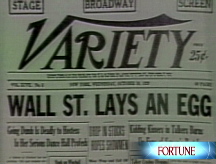Long, painful recession is likely - survey
Forecasters see anemic economic growth through 2009 as consumers retreat and unemployment rises.
NEW YORK (CNNMoney.com) -- The likelihood of a prolonged U.S. recession has increased significantly as economic conditions continue to deteriorate, according to a survey of leading economists released Monday.
The dour outlook comes as consumers drastically cut back on spending in response to rising joblessness in a business climate chilled by tight credit.
According to the National Association for Business Economics, which surveyed a panel of 50 experts, the U.S. economy will grow a mere 0.2% this year. The group had forecast growth of 1.2% in October.
A full 96% of the economists believe the economy is in a recession and nearly three-fourths think the recession could persist beyond the first quarter of next year.
In a sign that economic conditions will remain difficult for some time, the group slashed its growth outlook for 2009 to 0.7% from 2.2% last month.
"Business economists became decidedly more negative on the economic outlook for the next several quarters as a result of the intensification of credit market stresses and evidence of spillover to the real economy," said Chris Varvares, NABE's president in a statement.
This spillover has been most evident in weak consumer spending. A government report showed Friday that retail sales in October suffered the worst monthly drop on record as accelerating job losses weighed on household budgets.
Adding to the grim prognosis for next year, the jobless rate is expected to rise to 7.5% by the end of 2009. That's up from the 6.2% increase the group had forecast in October.
At the same time, home prices are expected to decline 3.5% next year, after falling 6% so far this year, according to NABE.
The economists see house prices leveling off "fairly soon."
While 48% of the panelists were hesitant to call a bottom on home prices before the middle of 2009, rapidly falling prices pave the way for "equilibrating" supply and demand in the housing market.
Only 40% of the economists believe that the Treasury Department's plan to buy mortgage related assets would have a meaningful impact on economic growth.
Treasury Secretary Henry Paulson effectively abandoned the Troubled Asset Relief Program on Thursday in a surprise shift of priorities for the government's $700 billion bailout plan.
The economists expressed support for the Federal Reserve's involvement in the commercial paper market and the Treasury's injection of capital into ailing financial institutions.
However, despite the positive effects of these programs, the group says credit conditions will continue to be tenuous. About one third of the panelists said credit will remain tight for consumers and businesses in the first half of 2009.
The group expressed some doubts about the FDIC's increase on bank deposits, which they said was likely to have only a "marginal" impact on economic growth.
Monday's report also showed that 60% of the economists believe the recession will be "relatively contained" with a peak-to-trough decline in gross domestic product of less than 1.5%.
Still, a majority of respondents expect global economic weakness to spread recession overseas.
Indeed, finance officials in Germany said last week that Europe's largest economy officially entered a recession. That preceded figures from the European Union that showed the entire euro-zone economy is in a recession. ![]()



